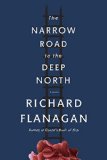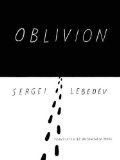Summary | Excerpt | Reading Guide | Reviews | Beyond the book | Read-Alikes | Genres & Themes | Author Bio

Richard Flanagan's The Narrow Road to the Deep North left me with very ambivalent feelings: on the one hand, I was impressed by its ambition, scope and underlying humanism; on the other, I felt that its overall structure - the back and forth between past and present, and the changes in point of view - was unconvincing. Structure aside, the story itself may be overwhelming for certain readers among whom I count myself: a look at the horrendous hardship experienced by WWII prisoners of war during the construction of the so-called "Death Railway" (or "the Line") between Thailand and Burma. (See Beyond the Book for more information.)
The novel's protagonist is Dorigo Evans, an eminent doctor, and survivor of one of the camps along the Line. Although venerated as a war hero and a great citizen, he looks back upon his life with cynicism and unhappiness. A self-deprecating womanizer even in his seventies, Evans has a devoted wife, Ella, whom he courted before going to war and married after returning from it, without being in love with her. At the beginning of the war, a chance encounter with another woman, Amy, turned into a passionate yet unresolved love affair that has been haunting Evans ever since. Amy is a strong character and her love story with Dorigo, besides being compelling in itself, humanizes a novel that otherwise would be a compilation of horrors. Less convincing, however, is the protagonist's inability to forget Amy dozens of years later.
Flanagan refuses to idealize heroism, exploring, instead, the idea that society defines normal people forced by circumstances to act in a certain way as "heroes." He deliberately creates a flawed protagonist in The Narrow Road. As a doctor in a POW camp, Evans has acted in a dignified way merely because he tried to do what was human. Now, he muses on the vanity of all things: "[he] hated virtue…virtue was vanity dressed up and waiting for applause."
Flanagan's musings on the nature of horror and the nature of man, as well as the way he chooses to end the lives of those perpetrating evil - Colonel Kota, Major Nakamura and the Korean guard nicknamed the Goanna - are the best parts of his novel. Colonel Kota, a "sensitive soul" who recites Basho before chopping off the heads of the prisoners with his sword, becomes, post-war, the head of a major humanitarian organization. Major Nakamura hides for years under a false identity, marries a nice woman and eventually comes out of hiding and dies of old age. Only the low-level operator, the Goanna, is hanged as a war criminal. The chapter written from the point of view of the Goanna is a powerful corollary of the "banality of evil": a man from a poor Korean family, whose only education had been the beatings received from his superiors, the Goanna does to others what has been done to him. His only regret, at the end of his life, is that his imprisonment has deprived him of his monthly fifty yen promised by the Japanese.
Flanagan bases his novel on the memories of his father, who was a POW in one of the "Death Railway" camps. The novel's visceral descriptions (such as the smell of gangrene and ulcers of the sick prisoners) never fall into the trap of spectacular imagery, but convey the author's genuine desire to present the horror as vividly as possible; a desire that is an homage to his father and, ultimately, a wish to bring this suffering to the forefront of our collective consciousness. The novel's epigraphs - one by the German-language poet and Holocaust survivor Paul Celan, and the other by the Japanese poet Basho, author of a "Narrow Road to the Deep North and Other Travel Sketches" - suggest that Flanagan intends to frame this WWII episode as a parallel to the Nazi concentration camps in Europe. Given all the above, it is surprising that he occasionally feels the need to spice up his novel with a few cheap thrills, such as Dorigo's wife and children being caught in a fire accident.
Even so, this uneven novel is impressive and deserves the attention it has been given.
![]() This review was originally published in The BookBrowse Review in November 2014, and has been updated for the
April 2015 edition.
Click here to go to this issue.
This review was originally published in The BookBrowse Review in November 2014, and has been updated for the
April 2015 edition.
Click here to go to this issue.

If you liked The Narrow Road to the Deep North, try these:

by Sergei Lebedev
Published 2016
A masterful novel about the search for the truth about a shadowy neighbor represents an epic attempt to rescue history from the brink of oblivion.

by Kate Atkinson
Published 2016
The stunning companion to Kate Atkinson's #1 bestseller Life After Life, "one of the best novels I've read this century" (Gillian Flynn).
Choose an author as you would a friend
Click Here to find out who said this, as well as discovering other famous literary quotes!
Your guide toexceptional books
BookBrowse seeks out and recommends the best in contemporary fiction and nonfiction—books that not only engage and entertain but also deepen our understanding of ourselves and the world around us.